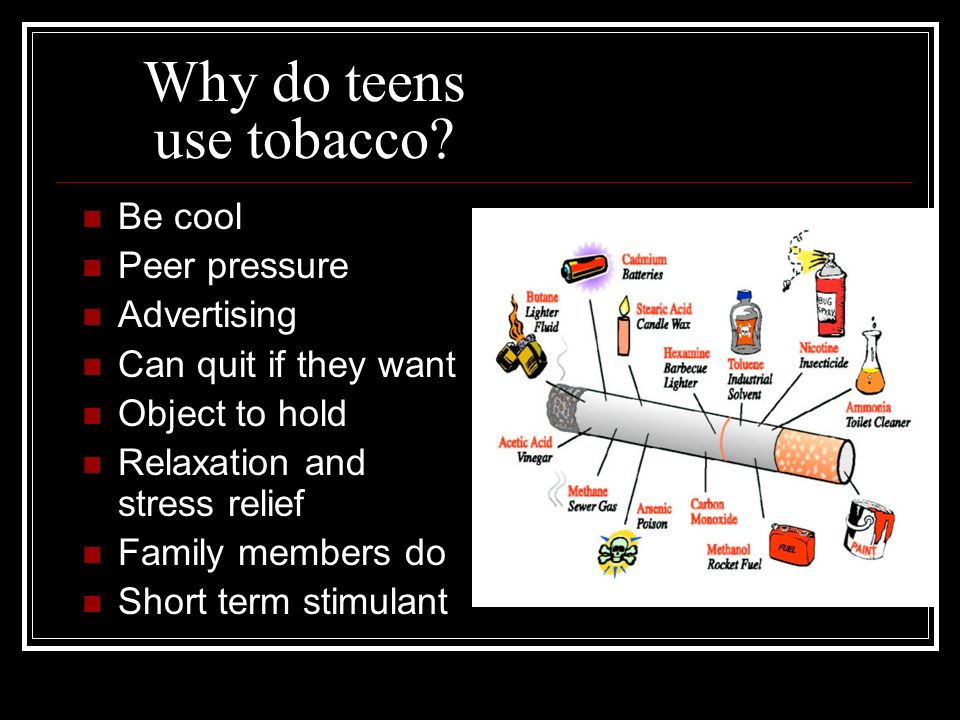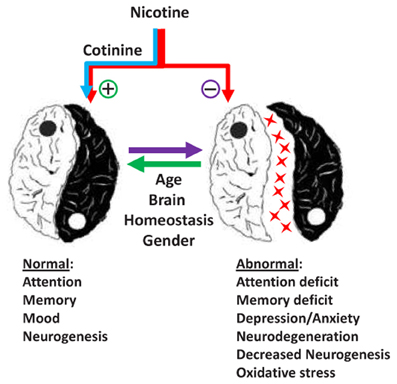People can smoke, chew, or sniff tobacco. Smoked tobacco products include cigarettes, cigars, bidis, and kreteks. Some people also smoke loose tobacco in a pipe or hookah (water pipe). Chewed tobacco products include chewing tobacco, snuff, dip, and snus; snuff can also be sniffed. Many people who use tobacco find it difficult to quit. There are also many other potentially harmful chemicals found in tobacco or created by burning it.
How does tobacco affect the brain?
The nicotine in any tobacco product readily absorbs into the blood when a person uses it. Upon entering the blood, nicotine immediately stimulates the adrenal glands to release the hormone epinephrine (adrenaline). Epinephrine stimulates the central nervous system and increases blood pressure, breathing, and heart rate. As with drugs such as cocaine and heroin, nicotine activates the brain’s reward circuits and also increases levels of the chemical messenger dopamine, which reinforces rewarding behaviors. Studies suggest that other chemicals in tobacco smoke, such as acetaldehyde, may enhance nicotine’s effects on the brain.


Comments
Post a Comment